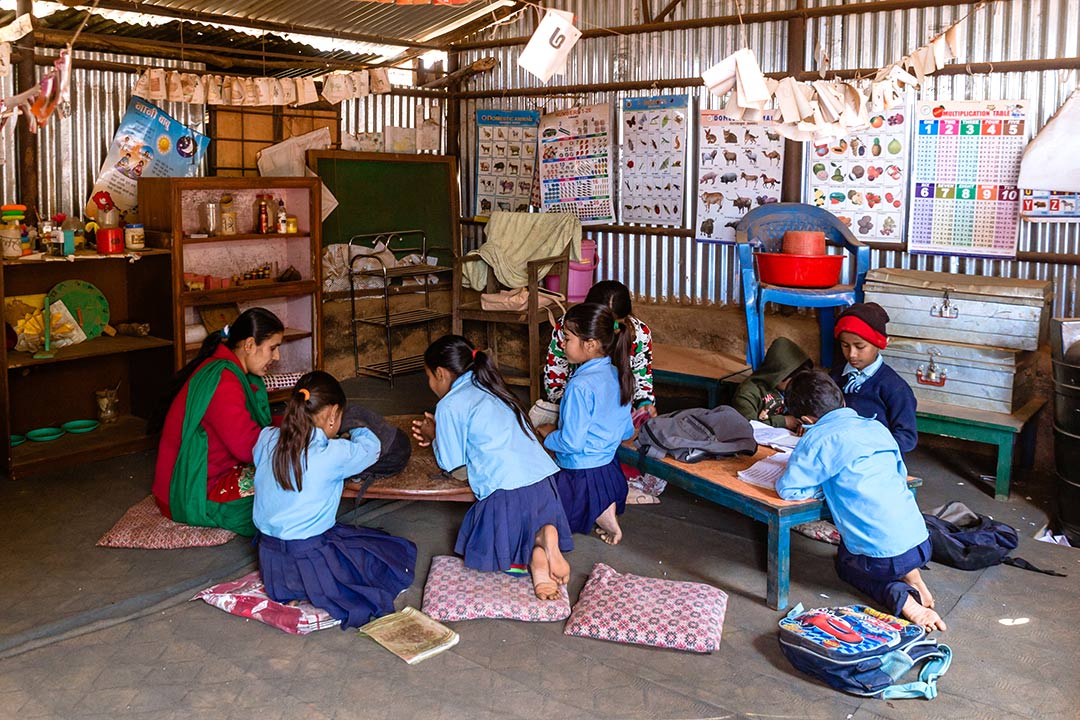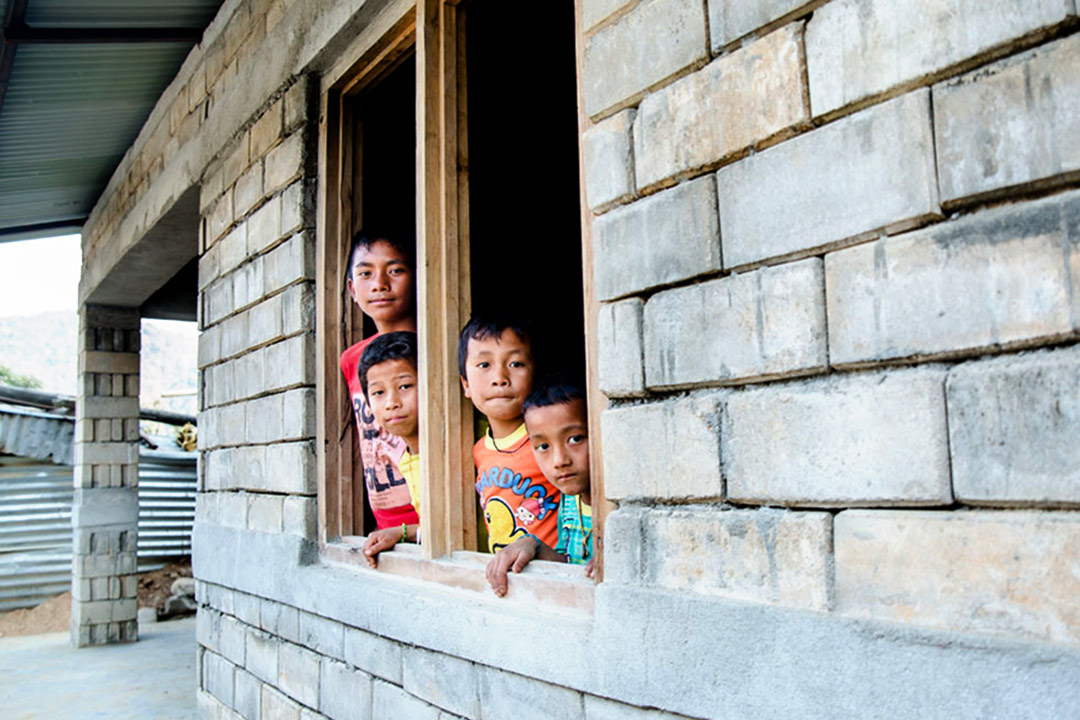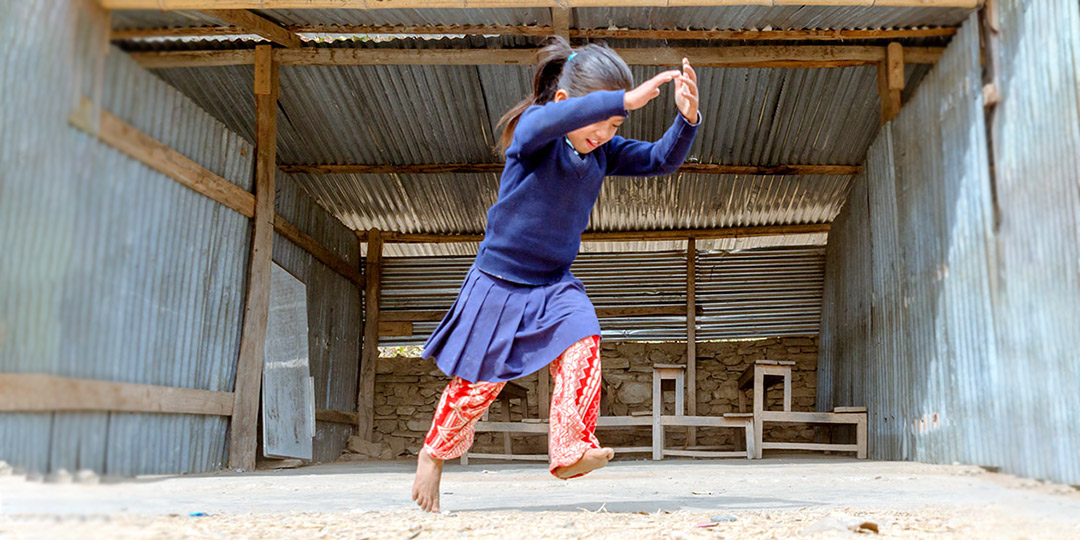Back 2 School

The Back 2 School project is an extension of the work previously done at Alaiche Kedar Primary School. As the buildings were finished we looked at the future needs of the school and came to the conclusion that learning conditions have big importance for the quality of learning. The principal of Alaiche Kedar Primary School expressed a need for new furniture and a playground. This felt like a natural development of our work at the school, and the project Back 2 School was created.
Changing the perception of education
The education system in Nepal is facing high drop out rates, especially among girls. While there are several theories for the root of this problem, the perception of education seems to be the underlying reason in many cases. The view of education as ‘a waste of time without future benefits’ results in children helping at family farms and businesses instead of attending their classes. This is a problem that needs to be managed on many different levels of society, but the assurance of quality education is crucial for change to be seen.


Our goal is to provide five of the school’s classrooms with new desks, benches, shelves and whiteboards, as well as fund the construction of a playground.
By doing this, we give the students a chance to play and laugh off everyday struggles while creating lasting bonds between one another. We believe that learning conditions such as new, lasting furniture and opportunities to play can contribute to a positive perception of education and experiences.
Playgrounds at schools increases the quality of education because…
It provides resting time. A well rested brain learns effectively and although sleep is the most important component of rest, play and social connection also serves this purpose.
It enables creativity. Playing is an energizing activity that improves creative thinking, which in turn helps with learning and is an important skill for any progress to happen. In fact, supporting creativity could be claimed to be as important as formal education.
It improves communication. Communication is a big part of our daily lives and is a skill that must be developed from an early age onwards. Play gives children opportunities to interact with each other, improving their intercommunication skills.